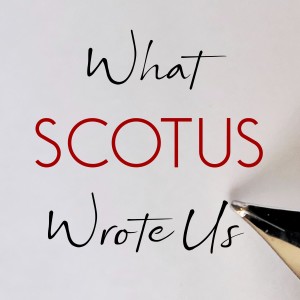
Delaware v. Pennsylvania and Wisconsin (Feb 28, 2023) (Escheatment, MoneyGram Official Checks)
 2023-03-01
2023-03-01
Audio of Delaware v. Pennsylvania and Wisconsin (Feb 28, 2023) Majority Opinion (Escheatment, MoneyGram Official Checks)
When property is abandoned and unclaimed, it often ends up becoming the property of the state where it's located - a legal principle called escheatment. But, when such property isn't tangible like, say, real estate - when it's something intangible, like an uncashed money order- figuring out who is entitled to that money can get a little messy.
Today I'll be reading the opinion of the Court in Delaware v. Pennsylvania and Wisconsin. There were three questions before the Court in this case regarding uncashed MoneyGram Official Checks - and the answers may determine who gets hundreds of millions of dollars in unclaimed money.
First, what exactly is a MoneyGram Official Check? Is it a traveler’s check, a money order, or some other similar written instrument (other than a third-party bank check) on which a financial organization, business association, or bank is directly liable under federal law.
Second, whether Pennsylvania and Wisconsin may claim any abandoned and unclaimed property associated with MoneyGram Official Checks.
Third, whether all future sums payable on abandoned MoneyGram Official Checks should be paid to Delaware.
Why is this such a big deal to Delaware? Well, for its compact size and population, a disproportionate percentage of American companies are incorporated there to benefit from business-friendly laws. In fact, there are so many businesses in Delaware that deal with unclaimed funds, the state ends up receiving a sizable chunk of revenue each year. In 2021, for example, eight percent of Delaware's state revenue came from unclaimed property - including uncashed moneygram checks. That's because one of those Delaware businesses happens to be - you guessed it - Moneygram.
Music by Epidemic Sound
More Episodes
Create your
podcast in
minutes
- Full-featured podcast site
- Unlimited storage and bandwidth
- Comprehensive podcast stats
- Distribute to Apple Podcasts, Spotify, and more
- Make money with your podcast
It is Free
- Privacy Policy
- Cookie Policy
- Terms of Use
- Consent Preferences
- Copyright © 2015-2024 Podbean.com





